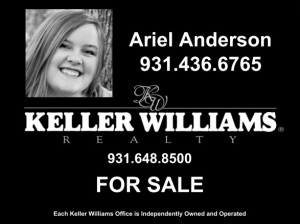 “So what will it cost us to secure your services?” One of the top questions that I receive. The answer may vary depending on the services you request. For the purposes of this 3 part series, I will let you in on Renter’s Agent, Buyer’s Agent, and Seller’s Agent pay. According to the 2013 National Association of Realtors Member Profile, “In 2012, the typical agent had 12 residential transaction sides – up from the previous year when the typical agent had 10 transaction sides.” Traditionally, the real estate industry is completely commission based. Most of the time, a Realtor works under the supervision of a broker unless they are a broker themselves. In that case the broker may have their own company or work with a large, well-known company like Keller Williams for example. There is also the option for a Realtor to work on a team within a larger company. All of these folks require payment. So realistically, on one real estate transaction, there is the potential for the commission to be split 6 different ways before it is all said and done. Let’s take a look at the Seller’s Agent…
“So what will it cost us to secure your services?” One of the top questions that I receive. The answer may vary depending on the services you request. For the purposes of this 3 part series, I will let you in on Renter’s Agent, Buyer’s Agent, and Seller’s Agent pay. According to the 2013 National Association of Realtors Member Profile, “In 2012, the typical agent had 12 residential transaction sides – up from the previous year when the typical agent had 10 transaction sides.” Traditionally, the real estate industry is completely commission based. Most of the time, a Realtor works under the supervision of a broker unless they are a broker themselves. In that case the broker may have their own company or work with a large, well-known company like Keller Williams for example. There is also the option for a Realtor to work on a team within a larger company. All of these folks require payment. So realistically, on one real estate transaction, there is the potential for the commission to be split 6 different ways before it is all said and done. Let’s take a look at the Seller’s Agent…
The Seller’s Agent. In the very beginning, the commission percentage for the whole transaction is agreed upon between the seller and the selling agent when the listing agreement is completed. Generally, the selling agent agrees to split that commission with the buyer’s agent, and that amount is noted in the listing agreement, as well as on the listing that is put on the Multiple Listing Service (MLS). The listing agreement also details the length of time that the agent will represent the seller, and any other pertinent information like bonuses to the Buyer’s Agent, etc. The listing agent is in a unique position. The idea is to get the home in great condition and priced right from day one. However, despite the agent’s best efforts, sometimes the house doesn’t sell right away. If the listing agreement expires, and the seller decides not to continue listing with the same agent, that agent may never receive any form of compensation for their time and effort towards marketing the home.
But they put a sign in the yard, place the listing on the MLS and then sit back and wait to get paid, right? Some agents do. That’s why I am hoping that you have done your research and chosen an agent who is willing to go the extra mile… like me! Once you crunch the numbers, it will look like a LOT of money that you are paying to be represented. Back to the “sign in the yard” question. Everything (almost) is negotiable in real estate, so it is important to understand what comes with that commission percentage. The agent may provide a professionally recorded video tour, a home inspection, color flyers, your home may be featured on their website, a lockbox for easy access, coordinated showings and feedback, open houses and all different types of advertising. Or they might not include any of those things.
So how is a Seller’s Agent paid? Once a contract is accepted, financing is arranged, and the transaction closes, the seller’s agent gets paid. The realtor commission agreed upon in the listing agreement is split between the Seller’s Agent and the Buyer’s Agent. Then, as I spoke of above, this is split with the agent’s broker, and may even be split with the agent’s team if they are on one.
Here is an example:
The price of the home is $100,000. The commission is 6%; 3% to the Seller’s Agent, and 3% to the Buyer’s Agent. The brokerage split is 70/30. The royalties to the company are 5%. And then the split to the team is 40%. The paychecks may look like this; $900 to the brokerage, $150 to the company, and $780 to the team. That potentially leaves $1170 to the Seller’s Agent before taxes.
Agent John Doe said that he will only charge me 4% commission, so I’m going to go with him. I’m sure you understand saving a few bucks, don’t you? I do understand the initial “let me save as much money as I can” feeling. But if you step back and look at the bigger picture, taking that 4% could cost you more in the long run. Considering that the commission is split between the Buyer’s Agent and Seller’s Agent like we talked about above, is the agent likely to split the commission equally down the middle? Probably not! The reason behind this is because the Buyer’s Agent may be accustomed to receiving a pretty consistent percentage on the sales that they help produce. We’ll say 3%. If the 4% is split down the middle, that means the Buyer’s Agent only gets 2% when on most other homes they may get 3%. That may mean the difference in showing another home (or many other homes) over yours. So, say the Seller’s Agent agrees to give the Buyer’s Agent the 3%, but there is only 4% to work with. That leaves the Seller’s Agent 1%. Let’s see what that looks like in numbers…
The price of the home is $100,000. The commission is 4%; 1% to the Seller’s Agent, and 3% to the Buyer’s Agent. The brokerage split is 70/30. The royalties to the company are 5%. And then the split to the team is 40%. The paychecks may look like this; $300 to the brokerage, $50 to the company, and $260 to the team. That potentially leaves $390 to the Buyer’s Agent before taxes.
Now, do you think a listing agent is going to extensively market your home, do open houses every weekend like you want them to do, and contribute ample time and money to your home for $390? If so, they won’t be in the business for long because they won’t be able to put food on their table. It is more likely that this will be the agent who puts a sign in your yard, places the listing on the MLS, and sits back waiting to get paid.
What if we do a For Sale By Owner instead? Click the chart to read over statistics provided by the National Association of Realtors, and enough said: 
Seller’s Agent Expenses. So dang, those agents make a lot of money, right? Hold your horses! On top of our split, we have all of these additional expenses and then some:
- Various taxes
- Office fees
- Office supplies
- Realtracs subscriber fees
- Advertising (signs, websites, business cards, etc)
- Clarksville Assocation of Realtors dues
- Tennessee Association of Realtors dues
- National Association of Realtors dues
- Dues for other professional organizations we may belong to
- Listing services (virtual tours, staging, professional pictures, home inspections, etc)
- Electronics (computers, cameras, etc)
- Phone bills
- Vehicle maintenance
- And the worst of all… GAS (sometimes multiple times per week)!
Does that break it down for you? Questions? Concerns?
Be sure to read, Realtor Pay Exposed (Part 1 of 3): The Renter’s Agent and Realtor Pay Exposed (Part 2 of 3): The Buyer’s Agent.
If you have questions or need real estate assistance in the Clarksville, Tennessee or Fort Campbell, Kentucky area or know anyone who does, call me today at (931) 436-6765 or submit your information below.
© Ariel Anderson and https://buyorsellclarksvilletennesseehomes.wordpress.com, 2014. Unauthorized use and/or duplication of this material without express and written permission from this blog’s author and/or owner is strictly prohibited. Excerpts and links may be used, provided that full and clear credit is given to Ariel Anderson and https://buyorsellclarksvilletennesseehomes.wordpress.com with appropriate and specific direction to the original content.





